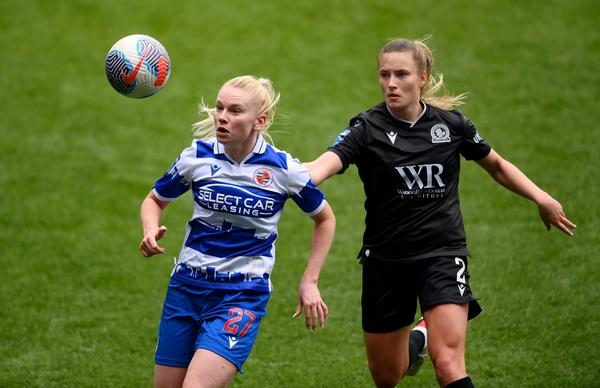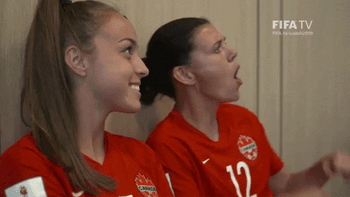Reading FC Women falls to fifth tier of UK women’s soccer amid club’s financial freefall

The GIST: Despite the rising popularity of women’s soccer in the U.K., the standing of Reading FC Women has dipped from bad to worse. Per SportsPro Media, the team, which played in the second-tier Women’s Championship (WC) last season, recently applied for fifth-tier status as finances have rendered the club unable to meet WC’s compliance requirements.
- For context, Reading played on the top-tier Women’s Super League (WSL) pitch just 13 months ago and finished in the top half of the 2019–20 WSL table before a quick and painful fall to the fifth tier — a regional league in southern England. Ouch.
The details: Reading officially announced their withdrawal from the WC on Sunday — which England’s Football Association has already approved — meaning the division will operate with 11 teams rather than 12 next season.
- Of note, 2024–25 will be the first season under the newly created NewCo organization, which will govern the U.K.’s top two women’s soccer flights: the WSL and the WC.
- The club will now miss out on the benefits to come with NewCo, including a 25% share of pooled commercial revenue.
The club: Reading was established in 1871, although the women’s side didn’t launch until 2006. The club joined the top flight WSL in 2016 and “[punched] above their weight” for several years before being relegated to the WC for the 2022–23 season.
- Former Reading captain Kelly Chambers was integral to the team’s WSL success as the director of women’s football from 2015 to 2023, when both she and longtime Reading coach Phil Cousins left the squad. End of an era.
The financial issues: Reading has been plagued with controversy under current owner Dai Yongge, a Chinese businessman who purchased the club in 2017. In January, an English Football League (EFL) statement said Yongge “is no longer in a position — or does not have the motivation — to support the club financially.” He was encouraged to either adequately fund the club or sell his majority share.
- Amidst their messy financials, the club is facing unpaid tax bills and over $242M in cumulative losses.
- Yongge put the club up for sale in March, but there haven’t been any takers. At one point, England national team stars and former Reading players Fran Kirby and Mary Earps were part of a group aligning to buy the team, but the deal ultimately fell through.
Lingering questions: The Reading problem brings up a bevy of questions, including whether or not the brother-sister format of many U.K. clubs is truly beneficial for women’s sports. There’s also a query around what brands and sponsors can do to hold ownership accountable, and if leagues should consider more rigorous vetting for ownership of women’s sports properties. Loads to think about.
Enjoying this article? Want more?

Sign up for The GIST and receive the latest women's sports business news straight to your inbox three times a week


